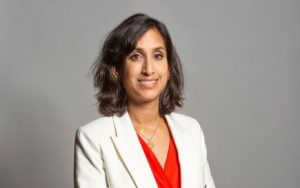
Councils should have a bigger role monitoring local residential settings in their areas to better protect disabled children, an inquiry into the abuse of children in three services has concluded.
The measure is among nine recommendations designed to overhaul the safeguarding of disabled children and those with complex health needs in residential care, made by the Child Safeguarding Practice Review Panel today.
The panel also called for disabled children and those with complex needs to have access to advocacy, for services for them to be jointly commissioned by councils and integrated care boards, for joint inspections of services by Ofsted and the Care Quality Commission and for investment in the workforce.
Today’s report is the panel’s second into the abuse of children at three residential special schools registered as children’s homes run by the Hesley Group in Doncaster, between 2018 and 2021, and is designed to draw systemic lessons from the failures of care, safeguarding, regulation and oversight exposed in its first report, published in October 2022.
Lead reviewer Christine Lenehan, director of the Council for Disabled Children, said the report echoed findings from previous abuse inquiries and warned that, this time, its conclusions needed to be heeded.
‘Child protection failings will recur without government action’
“Earlier reports have catalogued how disabled children with a complex mix of autism and health needs can be locked away behind closed doors, often in placements far from their families, with little concern for their quality of life or futures.
“These recommendations set out a roadmap to more humane treatment of these children. But without the wholehearted commitment to implement these measures fully, these failings will come back to haunt us when the next group of disabled children fall foul of services that cost the taxpayer dearly but rob vulnerable children of their basic humanity.”
The panel’s recommendations
- Disabled children and those with complex health needs should have access to independently commissioned, non-instructed advocacy from advocates with specialist training in safeguarding and responding to their communication needs.
- Children and parents should have access to advice and support, including the allocation of a ‘navigator’, where deemed necessary, when a residential placement of 38 weeks or above per year is being considered.
- The Department for Education (DfE) and NHS England should require councils and integrated care boards (ICBs) to commission safe, sufficient and appropriate provision for disabled children and those with complex health needs.
- The DfE, Department of Health and Social Care (DHSC) and NHS England should co-ordinate support for councils and ICB commissioners to improve forecasting, procurement and market shaping.
- The government should prioritise action to improve community-based provision for disabled children in pathfinders programmes for its children’s social care and SEND reforms.
- The government should commission a workforce strategy for children’s residential services, covering leadership development, workforce standards and training.
- National leadership and investment from providers are needed to improve the recruitment, retention and development of the children’s residential workforce.
- Host local authorities and ICBs should have a strengthened role in overseeing residential settings in their areas.
- The DfE and DHSC should revise and reduce the complexity of current arrangements for monitoring residential settings and take immediate steps to arrange joint inspections by Ofsted and CQC of those for children with disabilities and complex health needs.

Claire Coutinho (photo: HM Government)
The government is due to respond to the report within six months but, in a written statement to Parliament, children’s minister Claire Coutinho said that the DfE’s separate reforms to children’s social care and special educational needs and disability “[laid] the foundation for improving outcomes for this group of vulnerable children”.
She added: “There is more that can be done to support and protect these children and we intend to focus our existing reform programme to ensure that they consistently receive the care and support that they need and deserve, enabling them to thrive and fulfil their potential.”
‘Safeguarding systems are not working’
For the Association of Directors of Children’s Services, president John Pearce said: “The National Panel’s review is a stark reminder that the systems currently in place to safeguard and support some of our most complex children and young people are not working, and of how far we need to travel to ensure that they do.
The panel has assumed that its recommendations can largely be financed through more effective use of existing resources across social care, health and education, with some additional resource required to fund improved quality assurance by councils and integrated care boards (ICBs).
However, Pearce warned that many of the nine recommendations would require “a significant multi-agency resource requirement to implement effectively and take time to achieve”.
“The impact that 13 years of austerity has had on our ability to offer the kind of local solutions that allow all children to remain in provision close to home and connected to their communities, wherever possible, cannot be understated,” he added.
“Demand for placements of all types far outstrips supply and profiteering takes money out of the system when it’s needed most,” said Pearce. “We face longstanding challenges around placement quality, sufficiency and cost.
Commissioner: ‘children must be consistently seen and heard’
Children’s Commissioner for England Rachel de Souza said: “At the heart of this report is the necessity of keeping the voices of children and families at the heart of their support, and of providing safe, suitable care where required. Where a child’s behaviour is seen as ‘challenging’, this is often evidence that their needs are not being properly met, which is why having trusted professionals, positive engagement from parents and independent advocates is essential to prevent crises.
“I am particularly pleased that this report recognises that children with disabilities have specific needs and risks which should be set out in statutory guidance. However, ultimately, children will only be kept safe if they are consistently seen and heard, through positive contact with their families, face-to-face visits from social workers, independent reviewing officers and health commissioners, and a greater level of professional curiosity from all those responsible for their care.”





 Assistive technology and dementia: practice tips
Assistive technology and dementia: practice tips  A trauma-informed approach to social work: practice tips
A trauma-informed approach to social work: practice tips 




 Find out how to develop your emotional resilience with our free downloadable guide
Find out how to develop your emotional resilience with our free downloadable guide  Develop your social work career with Community Care’s Careers and Training Guide
Develop your social work career with Community Care’s Careers and Training Guide  ‘Dear Sajid Javid: please end the inappropriate detention of autistic people and those with learning disabilities’
‘Dear Sajid Javid: please end the inappropriate detention of autistic people and those with learning disabilities’ Ofsted calls for power to scrutinise children’s home groups
Ofsted calls for power to scrutinise children’s home groups Seven in eight commissioners paying below ‘minimum rate for home care’
Seven in eight commissioners paying below ‘minimum rate for home care’
 Facebook
Facebook X
X LinkedIn
LinkedIn Instagram
Instagram
Comments are closed.